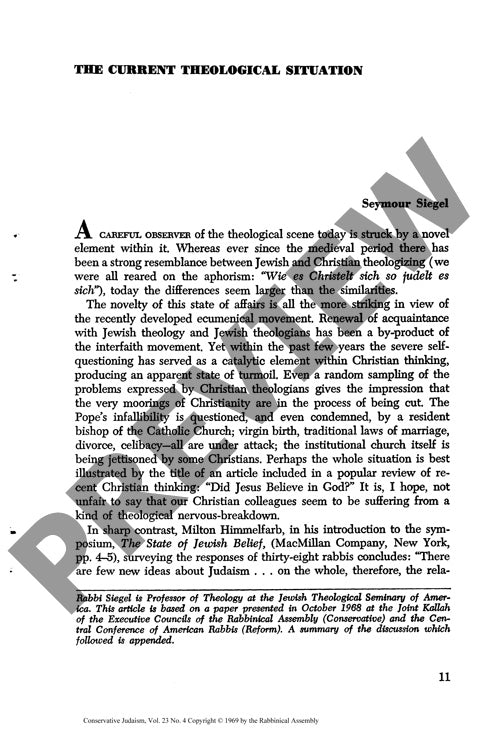The Current Theological Situation
Couldn't load pickup availability
While Christian theology grapples with fundamental doctrinal upheaval, contemporary Jewish theological discourse exhibits a striking stability that reflects intellectual vigor rather than stagnation. This theological divergence persists despite increasing interfaith dialogue between the two traditions. Through comparative analysis of recent Jewish theological literature and scholarly works, four critical areas emerge as central to modern Jewish thought: post-Auschwitz conceptions of God, post-liberal understanding of Covenant, post-relativist ethics, and post-secular hope. The research methodology combines theological comparison with detailed examination of publications by prominent Jewish theologians. Key findings reveal that Jewish theology's conservative nature stems from the continued adequacy of normative teachings, with primary challenges centered on transmission rather than doctrinal deficiencies. The stability of Jewish theological frameworks proves particularly effective in addressing contemporary existential and moral questions, drawing strength from Judaism's historical experience with secularism and its sustained emphasis on covenant relationship, divine commandment, and eschatological hope rooted in providential faith rather than secular achievement. This theological health stands in marked contrast to the current Christian theological landscape, suggesting distinct approaches to religious meaning-making in modern times.

More Information
-
Physical Description
-
Publication Information
Published 1969
ISBN
-
Publication Credits
Seymour Siegel

